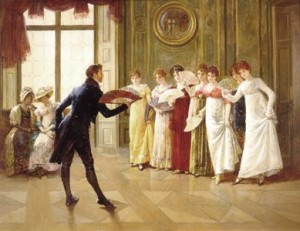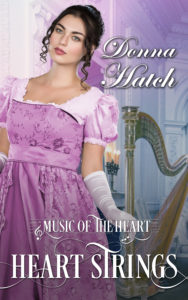
The dates which Parliament met varied from year to year. According to noted Regency researcher and author, Regina Scott, Parliament was in session during the following times:
- 1 November 1810 to 24 July 1811
- 7 January 1812 to 30 July 1812
- General election: 5 October to 10 November 1812
- 24 November 1812 to 22 July 1813
- 4 November 1813 to 30 July 1814
- 8 November 1814 to 12 July 1815
- 1 Feb 1816 to 2 July 1816
- 28 January 1817 to 12 July 1817
- 27 January 1818 to 10 June 1818
- General election: 15 June to 25 July 1818
- 14 January 1819 to 13 July 1819, before the 16 August 1819 Peterloo Massacre
- 23 November 1819 to 28 February 1820 (special session because of the massacre but ending early because of the death of George III)
- General election: 6 March to 14 April 1820
- 21 April to 23 November 1820 (including a special session beginning the third week of August for the trial of Queen Caroline).
Parliament always went into recess for Lent, which precedes Easter. When Members of Parliament, also referred to as MPs, returned to London after Easter, they typically brought their families, especially if they had sons and/or daughters of marriageable age to participate in what was often referred to as the “marriage mart.”
The focus was not always to find a spouse. Some families simply came to renew acquaintances and amuse themselves after wintering in the country. Regardless, the ton descended on London en masse. Activities varied but popular amusements were dinner parties, balls, musicales, attending the theater or the opera, visiting museums, going riding in the park, visiting private zoos, and riding hot air balloons, to name a few.
There were also the coveted vouchers for weekly balls at Almack’s Assembly Rooms where the Patronesses kept a tight rein over who would and would not be granted entrance based on family connections and behavior. Young ladies wishing to dance the scandalous new dance called the waltz had to first receive permission from the Patronesses, Lady Jersey, Lady Cowper, Countess Leiven, Mrs. Drummond-Burrell, Lady Castlereagh, Lady Sefton, and Princess Esterhazy.
The London Season was also crucial for the working class. The wealthy arriving in London needed servants for their town homes because they typically transported very few of their servants from house to house. If a family did not own a house in London, they rented a townhouse. They also shopped. A lot. Ladies absolutely had to have fine gowns as well as shoes, hats, gloves, reticules—you name it. The wealthy attended the theatre and opera, which meant more performers and all those employed by the theatres were needed. As you can imagine, the cost to attending a season in London was staggering, but most considered it a worthwhile investment if their children found a good match.
In short, much of the prosperity of London depended on the Season and the beau monde who peopled it. Merchants and craftsmen earned a living, and the wealthy amused themselves and secure the future of their lines. It seems to have worked pretty well for most.

When forced to choose between marrying a brutish oaf or becoming another man’s mistress, Susanna she flees to London with dreams of becoming a professional harpist. Entangling herself with a handsome violinist who calls himself Kit may be more problematic than sleeping in the streets.
With peril lurking in the shadows, Susanna’s imminent danger not only forces Kit to choose between his better judgment and his heart, but he must also embrace the life to which he swore he would never return.
Heart Strings is available now in Kindle and paperback here.
Sources:
http://www.reginascott.com/parliament.htm
https://www.janeausten.co.uk/the-patronesses-of-almacks-the-arbiters-of-london-respectibility/
The London Season posted first on http://donnahatchnovels.tumblr.com/
No comments:
Post a Comment